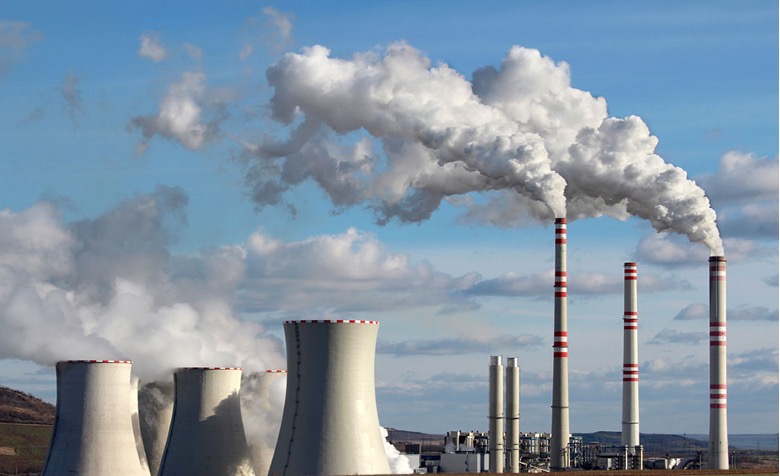
Audio By Carbonatix
Research and policy think tank, the International Perspective for Policy and Governance (IPPG), has urged the Government of Ghana (GoG) to ensure transparency and accountability in the implementation of the country's Emissions Levy Act, 2023 (Act 1112).
According to IPPG, the GoG must prioritize transparent revenue allocation and establish proper verification mechanisms for reported emissions to fully enable the Act to deliver on its environmental and economic objectives.
This, in the view of IPPG, will build public trust and ensure the levy's long-term success in reducing greenhouse gas (GHG) and vehicular emissions in Ghana.
The call from IPPG is detailed in a new research report titled "From Policy to Practice: An In-depth Review of Ghana's Emissions Levy Act". The Emissions Levy Act was passed in February this year as part of Ghana's Environmental Fiscal Reform (EFR) under the Medium-Term Revenue Strategy (MTRS 2024-2027).
The law imposes a levy on CO2e emissions from specific sectors, including construction, manufacturing, mining, energy, and on combustion emissions from gasoline and diesel vehicles. The levy is designed to support Ghana's commitment to achieving GHG emission reductions and avoiding at least 2,900 premature deaths annually through improved air quality.
The research report, authored by Seth Owusu-Mante and Reginald Nii Odoi, Esq., notes that for the Emissions Levy Act to be successful, it is essential that the GoG ensures transparent implementation and calls for the publication of detailed inventories of companies subject to the levy, their emissions levels, and regular reports on the revenues generated and their specific allocations. Without this level of transparency, IPPG warns that public mistrust and a lack of accountability may undermine the levy's effectiveness.
In addition, the report emphasizes the need for clear guidelines and dedicated bodies to measure and verify emissions accurately given that the law provides for self-reporting by companies subject to paying the levy. Without these, IPPG argues, implementing the levy may face significant challenges, which could hinder the Act's impact. The report notes that self-reporting raises concerns about the accuracy of emissions data, with companies potentially underreporting to reduce tax liability or overreporting due to a lack of standardized methods, thereby jeopardizing fair taxation and environmental goals.
The report also addresses the financial barriers to adopting cleaner alternatives in Ghana's transport sector. While the levy on internal combustion engine (ICE) vehicles aims to reduce pollution from diesel and gasoline vehicles and to encourage clean transportation, the high cost of electric vehicles (EVs) and limited financing options in Ghana present significant hurdles. Most Ghanaians can purchase used cars, but even used EVs are still significantly more expensive than used diesel or gasoline cars which limits their accessibility in Ghana. IPPG recommends that the GoG must implement supportive policies, such as subsidies for EV purchases, establishing credit and loan facilities through banks and other financial institutions, and investments in EV infrastructure to overcome these barriers and encourage cleaner transport options.
The report further highlights the absence of a dispute resolution mechanism within the Act and advocates for amending the legislation to include provisions for arbitration to streamline the resolution of grievances which can enhance the Act's effectiveness. The full research report offers valuable insights into how Ghana can leverage the Emissions Levy Act to achieve its environmental and public health goals while promoting sustainable economic development. Successful implementation will reduce Ghana’s GHG emissions, improve air quality, and foster economic resilience to drive the nation toward a sustainable, low-carbon future.
The full report can be downloaded here.
For further information, please visit the IPPG website at www.ippgafrica.org or contact:
Elana Clarke at e.clarke@ippgafrica.org.

Latest Stories
-
Hindsight: Adjetey’s Wolfsburg move in focus
33 minutes -
Sammy Crabbe congratulates Bawumia, urges NPP unity and stakes bid for national chairman
38 minutes -
Keep Akufo-Addo close to learn from his mistakes – KTU Researcher advises NPP
51 minutes -
Ghana loses US$54.1 billion to commercial illicit financial flow from 2013 to 2022
57 minutes -
2026 is a make-or-break year; we must deliver on the reset agenda – Lands Minister to CEOs, directors
1 hour -
Kofi Adams to launch 2026 UG Corporate Football League
1 hour -
Bawumia must break perceived Akufo-Addo control to win public trust, votes – Asah Asante
1 hour -
GRIDCo allays fear of power disruption over Afienya transformer upgrade
2 hours -
GRIDCo announces transformer upgrade at Afienya substation, no disruption to power supply
2 hours -
FDA to shut down food joints operating without hygiene permits
2 hours -
Tragedy in Kpetoe: Six-year-old girl drowns in irrigation pond
2 hours -
Bawumia’s first task is to smoke peace pipe – Dr Ansah Asante after NPP primary win
2 hours -
Melcom Care Foundation donates to four educational institutions
2 hours -
US and India reach trade deal, Trump says after Modi call
2 hours -
Foreign Affairs Minister arrives in Latvia to investigate death of Ghanaian student
3 hours

